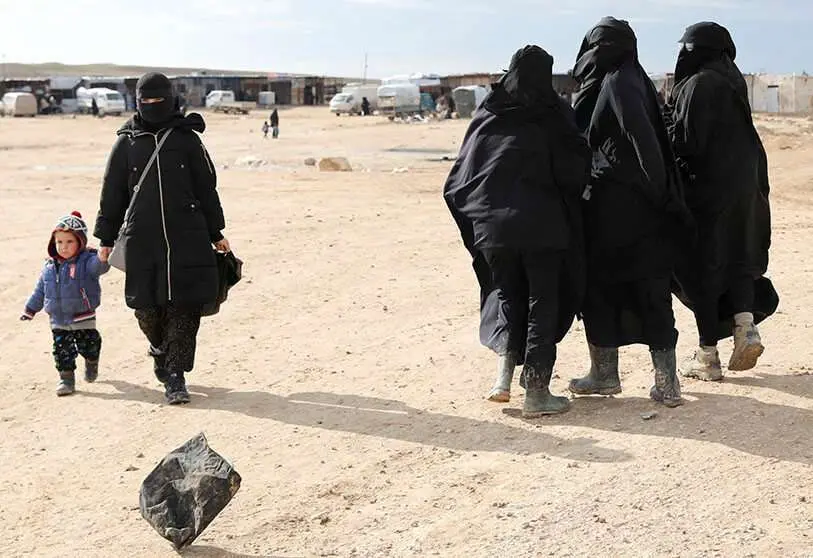20 killed in the Syrian camp of al-Hol in January, one beheaded in public

Al-Hol camp, which houses tens of thousands of family members of the jihadist Daesh group in northeastern Syria, recorded 20 killings in January, at least one of them by beheading, amid a spike in violence in the compound and a campaign of mass releases.
The activist collective Rojava Information Center (RIC) reported on Monday that most of the victims, 19 of them camp residents and the other a member of the Kurdish police or Asayish, were executed by shots to the head and were in their twenties.
According to a report published yesterday by the RIC, half of the dead were "beheaded", although the group said that an elderly Iraqi national was publicly killed in this way in the middle of last month, while it is unclear "to what extent" of the other nine.

"Only two of the 19 victims (residents) were elderly, one was the Iraqi elder and the other a member of the Civil Council in the camp who was killed by gunmen as he was leaving a mosque with his son," a Rojava Information Center official told the media via group messaging.
The UN humanitarian coordinator for Syria, Imran Riza, and his counterpart for the Syrian crisis, Muhammad Hadi, warned in late January of deteriorating security conditions in al-Hol and warned that the violence "endangers" the distribution of aid by the UN and its partners.

The Kurdish authorities, who control several areas in northeastern Syria, including al-Hol, have repeatedly called on the international community to help manage the camp, while some countries are repatriating several of their nationals and Iraq is reluctant to allow its nationals to return.
Last October, the Kurdish autonomous authority announced that it would give a general amnesty to some 25,000 Daesh-related Syrians, mostly women and children, held in the camp and would no longer be responsible for the other 45,000 foreign detainees.
Since then, several groups of hundreds of people have been released from the vast compound, where an estimated 62,000 inmates, almost all of them women and children with links to Daesh, have been detained following the liberation by Kurdish militias of areas controlled by the jihadists.









